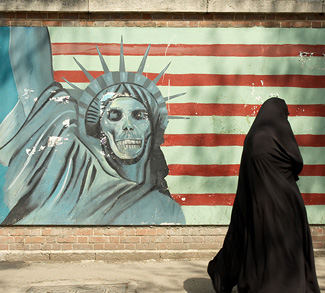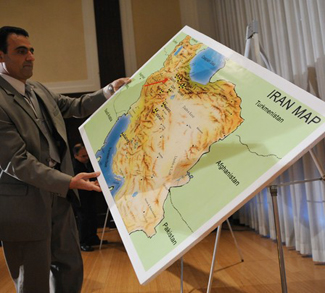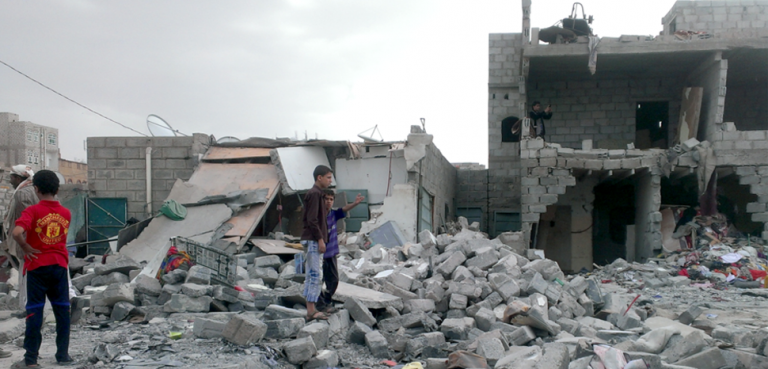For the past eight years, President Barack Hussein Obama had tried to find moderate leaders or officials in Iran that could negotiate bilateral and regional issues. President Obama assumed the only way to settle problems, including the Iran nuclear deal, with a dictatorial theocratic establishment is by way of talk and writing secret letters. He had expected that by challenging the US Congress he could find at least a second-hand leader in the dictatorial religious system to listen to his words and respect his letters. The responses by the demagogic “Supreme Leader” of the Islamic Republic (IR), even after the July 2015 atomic agreement and the lifting of international sanctions in January 2016, was and still is “death to America” and to walk on American flags. The extent of anti-American rhetoric that Iran was spewing dashed President Obama’s hopes and expectations. No matter how content former US President Obama felt by reaching the agreement with Iran, his performance will be judged not by ending the sanctions by negotiation, but more likely by why the leader of the free world and strongest democracy negotiated and proudly dealt with a dictatorial and terrorist regime that has continuously ignored human rights, systematically murdered innocent Iranian people, and committed terrorist acts outside the country, disturbing peace in the region.
Iran: Advocate of International Terrorism and Violator of Human Rights
Since 1984, US administrations have designated Iran as a terrorist regime every year, one that destabilizes Middle Eastern countries and aids international terrorist groups. In its last annual report on worldwide terrorism, the US State Department claimed Iran continues to support militant groups in Iraq, Syria, Lebanon, and Gaza, and also continues subtle efforts toward growing influence in Asia, Africa, and South America.
The organization that masterminds and carries out direct terrorist acts outside of Iran and violates human rights domestically is the Islamic Revolutionary Guard Corps (IRGC). IRGC is an industrial empire with political clout that has grown exponentially since the establishment of the Islamic regime in Iran, and it is notorious for its control of major sectors of Iran’s economy. The IRGC is essentially the owner of the most lucrative parts of Iranian industry, including the country’s major source of income: the oil and gas industry. The IRGC operates with huge political control and influence over governing groups. The IRGC is the only power structure within Iran that answers to no one, and it sees itself as the sole defender of Islamic ideology and the only organization empowered to protect the so-called Islamic revolution. The IRGC carries out its internal and external strategies by two active elite units: the business branch “Khatam-al-Anbia” and the terrorist arm “Quds Force,” respectively.
Khatam-al-Anbia Unit
The main responsibility of this unit is to produce income. It owns and runs almost all major entities in the country including banks, transportation, media, telecommunication sectors, industries, mining, port operations, railroads, and airports across the country. Most importantly, it presides over the National Iranian Oil Company (NIOC) and all its affiliated branches, pipelines, refineries, production complexes, drilling rigs, and many other components. With billions of dollars at hand, it is very active in smuggling banned commodities across the Persian Gulf, transferring money to terrorist groups and, should the opportunity arise, the proliferation of weapons of mass destruction. Khatam-al-Anbia has been directly involved in the purchasing of military equipment, including S-300 missiles from Russia.
From 2011, when international sanctions started to bite, it was only the Khatam-al-Anbia that had the authority to take over the business of the oil companies that had been forced to leave Iran. Iran’s corrupt government awarded their incomplete contracts to the Khatam-al-Anbia unit without any bidding or competition. At that time, Khatam-al-Anbia was awarded the development of parts of the giant South Pars gas field in Iran and was contracted to build a $1.3 billion “Peace Gas Pipeline” from South Pars gas field to Pakistan. Evidently, nowadays in order to participate in any infrastructure and construction projects, including oil and gas, foreign investors have to deal with front companies of the Khatam-al-Anbia. The US State Department has recognized the NIOC as an entity of the IRGC.
Furthermore, after retirement, many high-ranking regime officials and military officers capitalize on their connections by gaining control and ownership of privatized state-owned firms or by forming enterprises that thrive on government contracts. Therefore, they are not subject to any effective oversight.
Quds Force Unit
The other arm of the IRGC is known as “Quds Force,” and this is the unit that carries out terrorism around the world. The IRGC does not deny that its Quds Force unit, whose commander called the US “irrelevant” while visiting Vladimir Putin in the Kremlin last year, cooperates with other terrorist groups, including Hamas and the Hezbollah militia in the Middle East along with terrorist groups in Africa and South America. Quds Force has been committing international terrorism and oil revenues are making these atrocities possible.
What has been accomplished since sanctions were lifted?
The crippling international sanctions imposed on Iran in order to curtail its nuclear activities cost the country hundreds of billions of dollars in the past 10 years. According to the US Energy Information Administration (EIA), oil revenue accounted for 85% of Iran’s total export earnings. During the additional global sanctions put on the Iranian oil industry in 2012, oil production dropped from 3.7 million to 2.8 million barrels per day, and crude oil exports dropped from 2 million to 1 million barrels per day. The country’s economy was headed toward bankruptcy and the near 40 percent inflation, along with the unbearable increases in the cost of living with over 33 percent unemployment, left Iran with no choice except negotiation. It therefore agreed to the global powers’ demands to limit its nuclear activities.
Although some Western observers had expected a degree of moderation after Hassan Rouhani won the Islamic regime’s fabricated presidential election in July 2013, and definitely after international sanctions were ended in January 2016, nothing improved. The expectation of the free world was that the activities of Iran in destabilizing the region, its international support of terrorism, its testing of intercontinental missiles and, as widely acknowledged, its systematic violation of human rights would all gradually abate. Not only has that not happened, but human rights issues have deteriorated.
A year since sanctions were lifted, all front companies and their IRGC officials have been taken off the list of sanctions by the international community, primarily by the EU. Assuming European and Asian oil companies step in to share in Iran’s lucrative natural resources, they would undoubtedly deal in the mainline of negotiations with fabricated companies belonging to Khatam-al-Anbia that ask for shared profits and joint ventures, and further demand bribes under prevailing circumstances. Therefore, any oil company or international firm that wishes to do transparent and clean business in Iran naturally should deal with Iran’s notorious IRGC branch, Khatam-al-Anbia. Regardless of their skill and expertise, these companies are required to have aboard an Iranian partner belonging to IRGC, which in most cases lacks technological known-how and the ability to carry out most projects. This would be an impediment to foreign companies’ ability to carry out their responsibilities.
In spite of this, ending sanctions and signing contracts with foreign firms may boost Iran’s economy, but it would do so at the cost of giving the IRGC more cash. This has been forecast by many after sanctions were ended, including Senator Bob Corker, chairman of the Senate Foreign Relations Committee and John Boehner, the former Speaker of the House who stated the IRGC would be the number one beneficiary of the sanctions ending.
Iran and Human Rights
On the matter of human rights, the US State Department disclosed once again in its recent report on the issue of human rights in the world that Iran is second place in the number of global executions next to China. However, Iran has more per capita executions than China and is number one after adjusting for differences in population.
Human rights conditions in Iran not only have not improved under the so-called “reformist” President Rouhani, but have indeed deteriorated significantly, especially in the year 2016. During the last six months alone, among other violations, there have been executions of political prisoners that have already been imprisoned for several years; an ever-increasing number of executions of underage young boys and girls; a growing number of arrests of minority citizens throughout the country; continuous pressure on and closures of newspapers; and the imprisonment of web bloggers. This policy of intensification of repression is an indication of the regime’s determination to horrify the Iranian people as the so-called presidential “election” approaches and to suppress any political opposition after the lifting of sanctions.
The nature of this regime has been completely exposed. It has made constant promises which have been delivered by various regime officials on different occasions to improve the economy and better the life of its citizens in the near future, but Iranian society has heard these kinds of baseless and empty promises time and again over the last 38 years. However, it seems the Iranian people have reached their limit, as large and ever increasing segments of society from all walks of life are now demanding regime change and are taking the risk of confronting tyranny by civil disobedience, and that is why the rate of systematic executions by the dictatorial regime increases daily and openly.
The opinions, beliefs, and viewpoints expressed by the authors are theirs alone and don’t reflect any official position of Geopoliticalmonitor.com.




